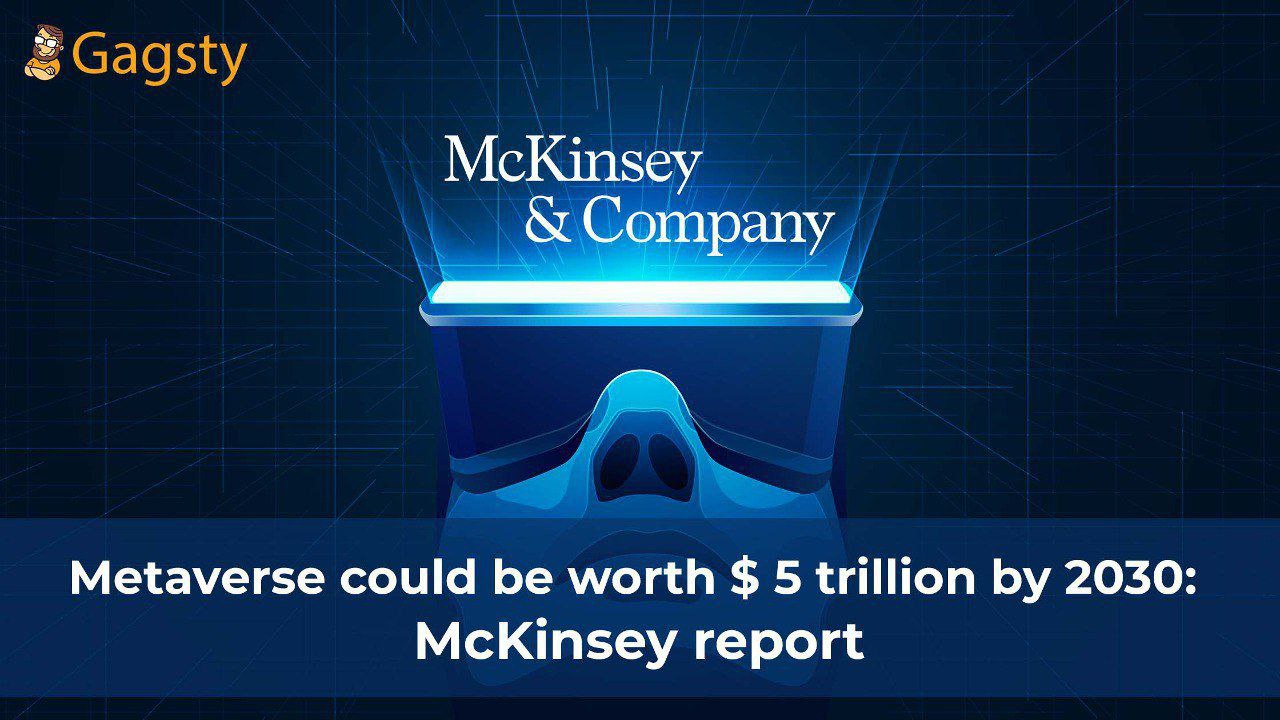
According to the new report from the global consulting firm, McKinsey found that the metaverse could be worth $5 trillion by 2030.
Global spending on metaverse could reach $5 trillion by 2030, according to a new report from international consulting firm McKinsey & Company.
Published yesterday, the 77-page report, entitled “Value Creation in the Metaverse” analyzes current adoption trends and generates additional insight from two global surveys. One collected data from 3,104 consumers in 11 countries, the other surveyed a range of executives from 448 companies in 15 industries in 10 different countries.
McKinsey used this data to forecast that the forthcoming consumer behavior in the metaverse will most likely be divided into five primary activities: gaming, socializing, fitness, commerce and remote learning.
McKinsey found that nearly 60% of all consumers surveyed prefer at least one activity in the digital world equated to its physical alternative, and 79% of consumers that are currently active in the metaverse have already made a buy.
E-commerce will be the primary cash cow in Metaverse, McKinsey predicts it will cost between $ 2 trillion and $ 2.6 trillion by 2030. Virtual advertising will be another major sector, with the associated revenue expected to be another $ 144 billion to $ 206 billion.
Faced with the current pessimism in the conventional crypto market, the report highlights that in the first five months of this year, more than $ 120 billion has already been invested in metavars-related technologies and infrastructure – more than double the total of $ 57 billion throughout 2021 investments have been made in Metaverse technology.
In a joint blog post, Lareina Yee and Eric Hazan, lead authors of the report and McKinsey’s senior partners, commented on their research.
“What’s exciting is that the metaverse, like the internet, is the next platform on which we can work, live, connect, and collaborate.”
Yee added, “Executives often don’t agree on very much, but our research shows they overwhelmingly agree on one thing: 95% of them believe the metaverse will have a positive impact on their industry.”
The report added that 25% of all executives said they expect Metaverse to drive 15% of their organization’s gross margin growth in five years and about one-third believe Metaverse can make a significant difference in how their industry works.
Notwithstanding the overall interest, there was still a healthy dose of skepticism, with 31% of all executives remaining somewhat uncertain about the return on investment of metaverse experiences.
Though brands should be enthusiastic about the opportunities awaiting them in the metaverse, they should also be ready to face encounters head-on and do some serious planning, said Hazan.
“There are urgent challenges that need to be considered. For one, there’s going to be a need to reskill part of the workforce to take advantage of, rather than compete with, the metaverse. Stakeholders will need to build a roadmap to make sure the metaverse experience is ethical, safe, and inclusive.”
Yeh reiterates her point that Metaverse is still a dynamic and evolving space. She said that individual manufacturers and big brands need to adopt a similar long-term mindset if they want to succeed in the future of Metaverse.
Leave a Reply